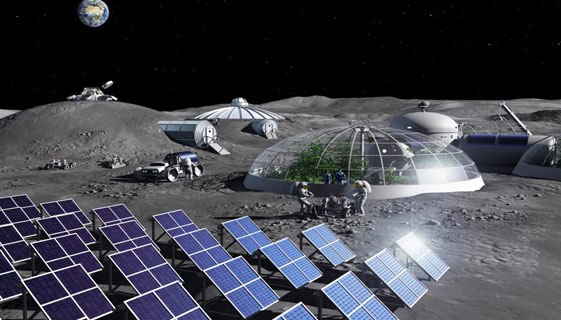
May 1st, 2023 |

By David Bullock
The European Space Agency (ESA) has recently announced a new initiative to explore the feasibility of space-based solar power (SBSP). This exciting project aims to harness the power of the sun by capturing its energy in space and beaming it back to Earth, providing a sustainable and reliable source of clean energy.
SBSP is a concept that has been around for decades, but it is only now becoming a reality. The basic idea is to launch large solar arrays into space that can capture the sun's energy 24 hours a day, seven days a week, without being affected by weather patterns or other environmental factors that can impact solar power generation on Earth.
SBSP is also being actively pursued by Japan, China, Russia, India, and the United States. In 2008, Japan passed its Basic Space Law which established space solar power as a national goal, and JAXA has a roadmap to commercial SBSP.
The ESA initiative is still in the early stages of development, but it has already attracted the attention of scientists, engineers, and policymakers worldwide. The agency is currently exploring different technologies and designs for space-based solar power, focusing on developing a efficient and cost-effective system.
One of the critical advantages of space-based solar power is its ability to provide energy to areas that are difficult to reach or have limited access to traditional power sources. For example, remote regions or disaster-stricken areas could benefit significantly from a reliable source of clean energy that is not dependent on local infrastructure.
SBSP also has the potential to address some of the challenges associated with climate change. By reducing our reliance on fossil fuels and other non-renewable energy sources, we can reduce our carbon footprint and mitigate the impact of climate change on our planet.
Of course, many challenges still need to be overcome before SBSP becomes a reality. For example, launching solar arrays into space is a complex and expensive process that requires advanced technology and infrastructure. There are also concerns about the potential environmental impact of space-based solar power, such as the impact on wildlife and the risk of space debris.
Despite these challenges, the ESA's initiative is an exciting step forward in the development of sustainable and reliable sources of energy. With continued investment and research, SBSP could become a key player in the global energy mix, providing clean and renewable energy to people around the world.
To find out about how the Beyond Earth Institute has to say about SBSP, see our report recommending A National Strategy on Space Solar Power.